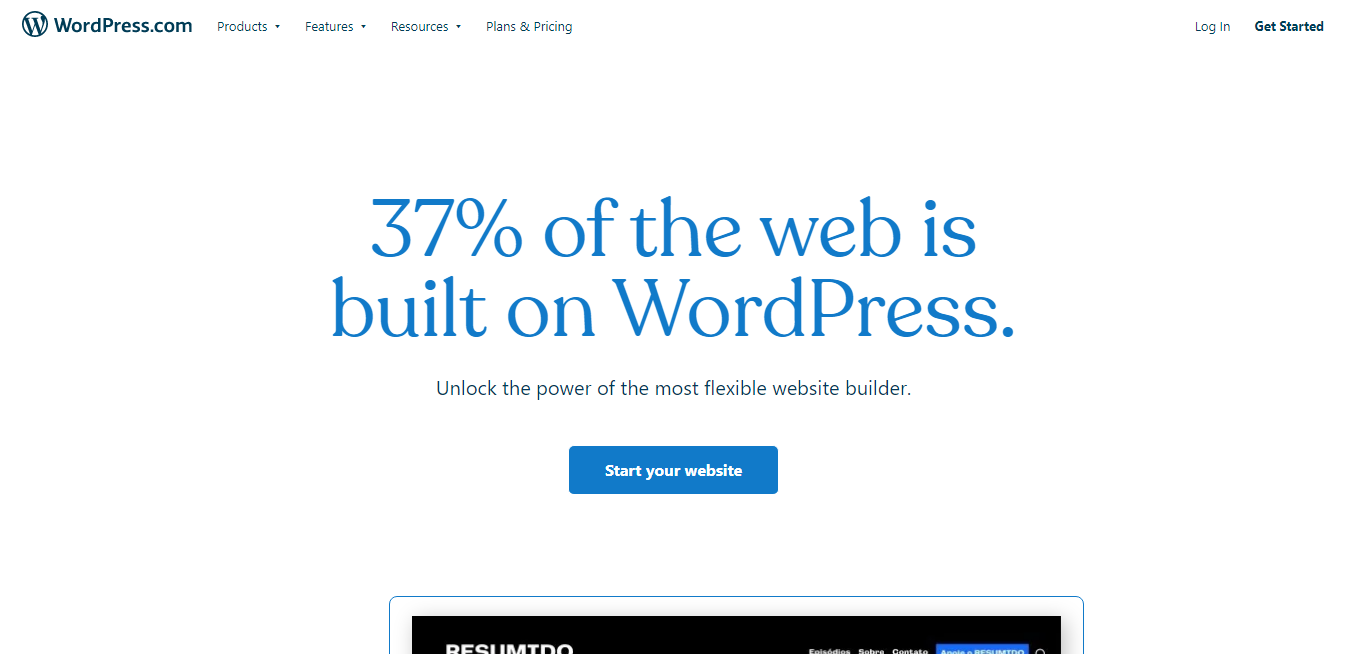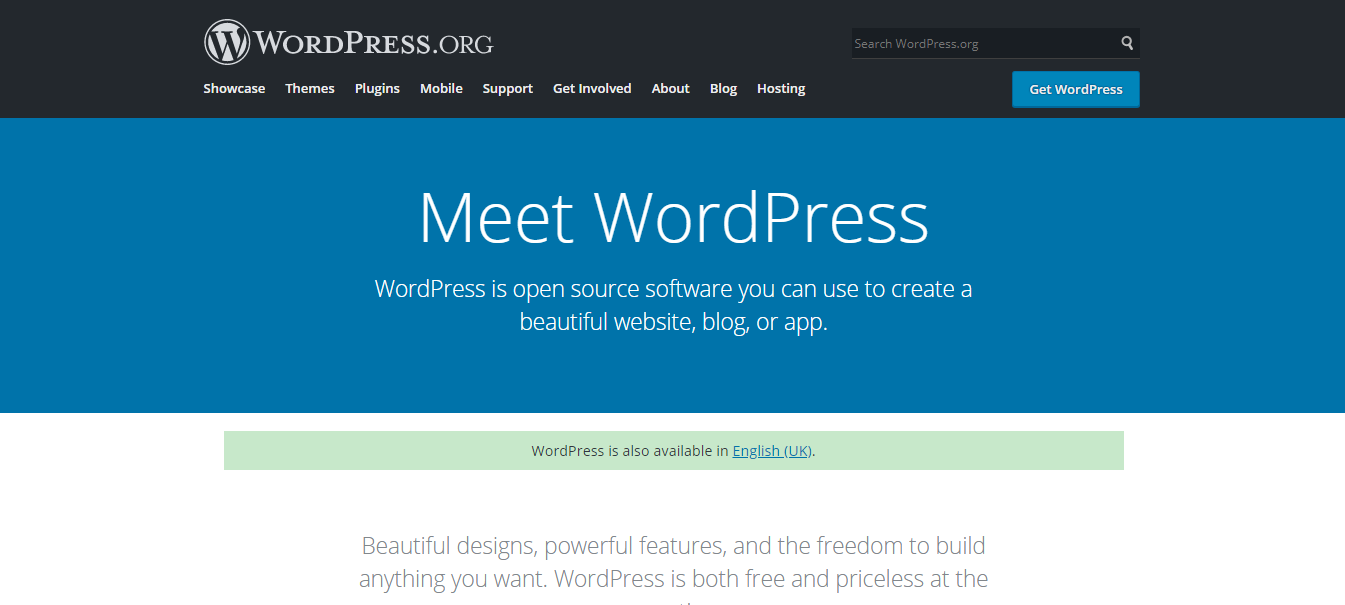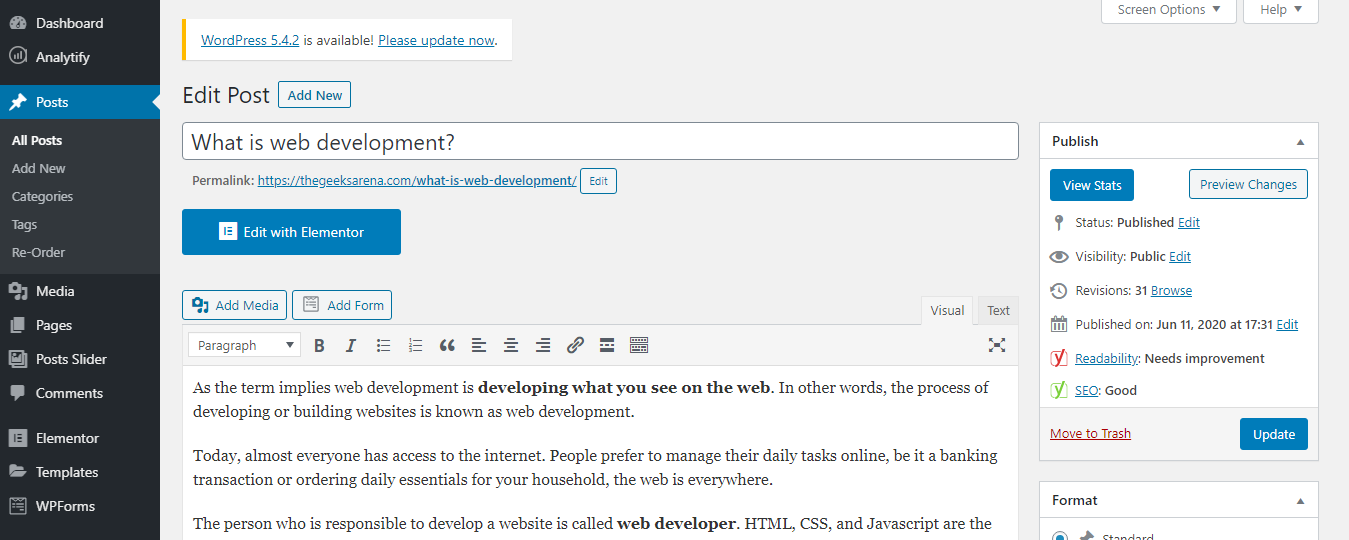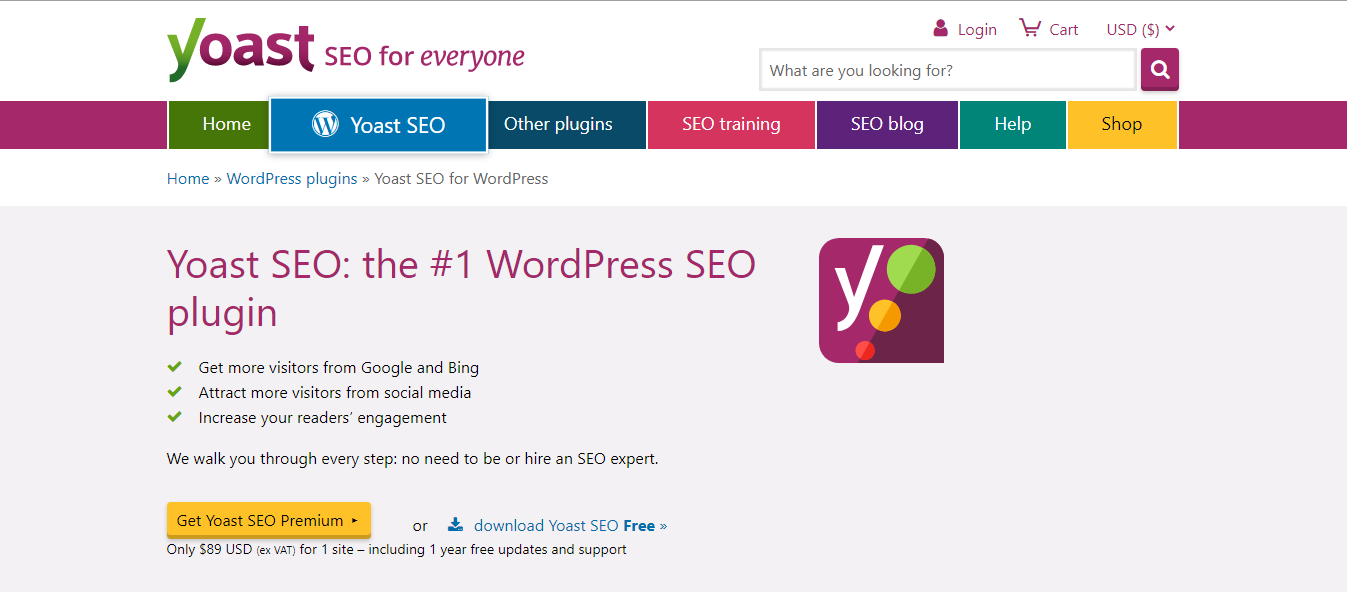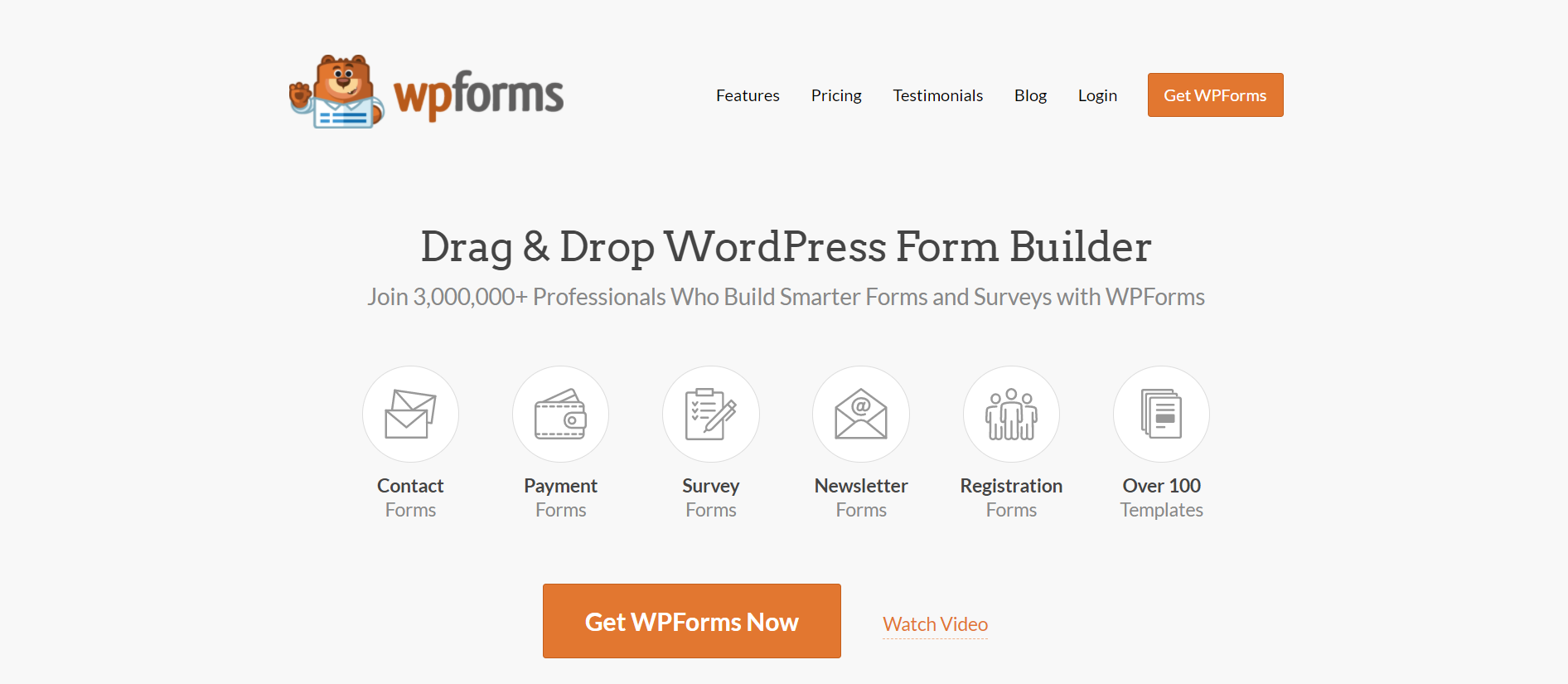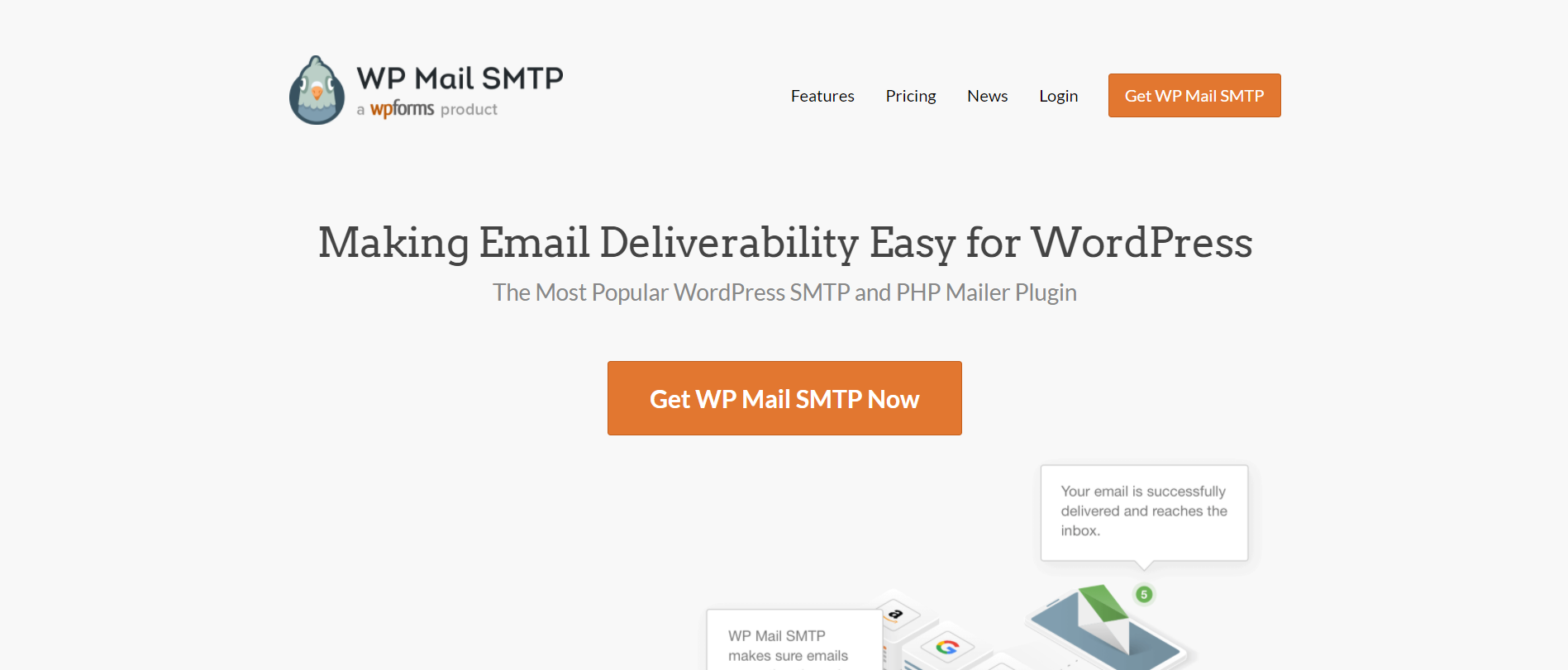WordPress is a free and open-source Content management system (CMS) written in PHP (Programming Language). It is the largest CMS across the globe which provides awesome features and is highly customizable.
It features almost 37 % of the web. Let’s have a look at some of its features.
Salient features:
1. Suitable for people of non-technical background.
2. Simple and easy to use drag and drop features, No need to code.
3. Predefined theme library (free and paid) to choose from for every scenario.
4. Wide variety of plugins to enhance WordPress website features.
5. It can make different types of websites like a blog site, business website, online store, and so on.
6. Supports third party themes and plugins installation.
7. Wide WordPress community support makes it easier to use and ask for help in case of any problem.
8. Joomla, Drupal, Magento are some of its competitors.
Now, some of you might be thinking that why and how does it manage all these things without requiring the user to code. Well, that is because developers have already written code in the backend for us to use and so whatever we do in the front or through the admin dashboard like changing a button color or making headers and footers, all this is already managed by pre-written code by developers.
I often see people getting confused among two WordPress sites. WordPress.org and wordpress.com.
What are they? Let’s have a look.
WordPress.com vs. WordPress.org
WordPress.com is a page builder website where you can use drag and drop features to design your WordPress site.
They have free and paid plans based on the user type.
Here are their paid plan details:
1. Free
- Provides free themes
- Pre-installed SSL certificate
- Supports WordPress subdomain
- No online support
- 3GB of storage space
- Price – ₹0/-
2. Personal
- Best for personal use
- Provides free themes
- Pre-installed SSL certificate
- Supports custom domain free for 1 year
- Provides email and basic live chat support
- Can remove wordpress.com ads
- 6 GB of storage space
- Price – ₹160/month, billed annually
3. Premium
- Best for freelancers
- Provides free and premium themes
- Pre-installed SSL certificate
- Supports custom domain free for 1 year
- Provides email and basic live chat support
- Can remove wordpress.com ads
- 13 GB of storage space
- Supports custom CSS and google analytics
- Price – ₹280/month, billed annually
4. Business
- Best for small businesses
- Provides free and premium themes
- Pre-installed SSL certificate
- Supports custom domain free for 1 year
- Provides email and basic live chat support
- 24/7 Priority Live Chat Support
- Can remove wordpress.com ads
- Supports custom themes and plugins
- 200 GB of storage space
- Price – ₹640/month, billed annually
5. E-commerce
- Best for online stores
- Provides free and premium themes
- Pre-installed SSL certificate
- Supports custom domain free for 1 year
- Provides email and basic live chat support
- 24/7 Priority Live Chat Support
- Can remove wordpress.com ads
- Supports custom themes and plugins
- Provides advanced e-commerce features
- 200 GB of storage space
- Price – ₹1152/month, billed annually
Visit the full comparison chart for all the packages on the official site.
WordPress.org is a free and open-source CMS and which can be downloaded and installed on users’ machines and can be customized as per one’s need.
Once you download and install WordPress on your machine, you will be greeted with an interactive dashboard screen like below where you can try a variety of themes and plugins for your website.
Enough with the difference. Let’s see a list of popular and widely-used plugins:
1. Elementor

It is a very popular page builder compatible with almost every theme. It is a powerful tool used to customize your page design as you like. Both free and pro versions are available.
Alternatives: siteOrigin, Visual Composer, etc.
2. WooCommerce
It is a popular eCommerce plugin used to provide eCommerce functionality to your WordPress website. It will just ask for your basic business details to get you started. Both free and paid versions are available.
3. Yoast SEO
It is a commonly used plugin for doing on-page SEO of your website. So if you want to optimize your site for better rankings in Google, You must give it a try.
4. WP Forms
Every website has a contact form to enable users to get in touch or post queries regarding your business offerings. It is a great tool to capture your audience’s response in an organized manner. It’s easy to configure and integrate and you can have all the users’ responses in one place. It comes in different skins to choose from and also the form fields can be customized as per need.
5. WP Mail SMTP
Do you want your WordPress site to send emails?? Well, In that case, you might need this one.
By default, WordPress uses the wp_mail function to send emails which sometimes creates problems. So to overcome that, we can use the WP Mail SMTP plugin to route all the emails to the email account you provide while configuring the plugin. It provides integration support with various mail providers like Gmail, Yahoo, Hotmail, and so on.
For more info visit How to set up SMTP using WP Mail SMTP plugin.
Conclusion
WordPress is a widely used platform for developers, non-developers, and businesses because of its premium features and easy to use interface. It can cater to one’s customized needs very efficiently and is very much cost-effective.
Now here is quick advice on what version (.org or .com) to choose and when. If you are a beginner and want to start your blog, you can choose either of the above but if you want to have better control over your website code and want to dig deep into how WordPress works, we would recommend using wordpress.org.


